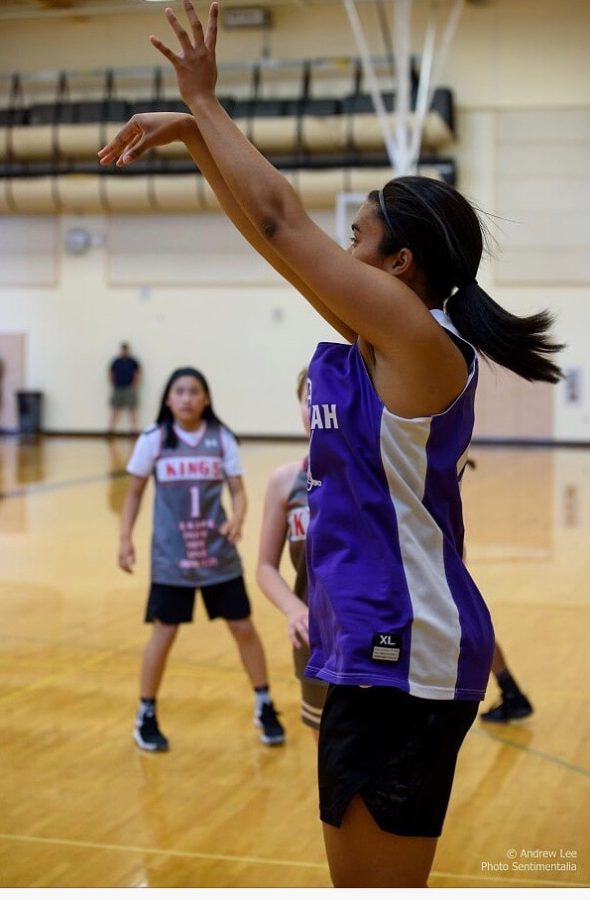‘I was tired of loving something but having it cause me so much stress’: Specific Pressures from Athletics are Causing Student-Athletes to Reach Their Limit

March 29, 2022
It is not uncommon for adolescent athletes to feel under pressure. Their routines of school and practice start to become repetitive and the constant battle for academic and athletic validation plays over and over in their minds. While sports have been proven to have beneficial components such as physical activity, work ethic and friendships, sometimes they can still feel like something is missing; causing them to question whether to continue to play or not.
In 2017, around 8 million adolescents participated in a school sport. The year after, there was a 43,395 decline in participants.
Many may believe that it is the familiar mentality to push athletes and the pressures that come with that attitude. While that is a major factor, some evidence suggests that it is much deeper than that.
Paris Wallace, a Senior from Issaquah High School who used to play basketball for 12 years and is now currently playing her seventh year of lacrosse expresses her frustration with high school athletics.
“I think entering into High School sports, the ‘fun’ went away to an extent.” Wallace said. “I’ve had coaches where fun is definitely very important and implemented, but I’ve also had coaches and teammates who make the environment so frustrating and only competitive that it does become a struggle to want to come to practice.”
Although it is known that the level of competitiveness increases as an athlete gets older, sometimes even the smallest changes such as losing the element of “fun” can cause athletes to lose interest in their sport.
The Fun Integration Theory: Toward Sustaining Children and Adolescents Sport Participation conducted by Amanda J. Visek discovered that there were 81 consistent determinants that athletes defined as “fun”. Visek recognized that there were four main categories that each determinant fell under (internal, external, social and contextual factors).
“The FUN MAPS provide evidence-based blueprints for the fun integration theory (FIT), the only stakeholder-derived and fully conceptualized theoretical framework for understanding exactly what constitutes fun in sports today and how best to foster such fun sport experiences,” the study stated.
The study revealed that positive experiences have been shown to be the key factor for sustaining children’s participation and interest in physical activities. Without those positive reinforcements, athletes are more likely to stop playing their sport because as some athletes say, ‘it’s just not fun anymore’.
Another reason that is causing athletes to walk away from their sport is the pressures they feel from their sports programs and the environments surrounding them. Athlete A (who chose to have their name withheld) expressed discouragement and discontent they felt while playing basketball in high school.
“It was very cutthroat and competitive once I entered high school [basketball], but not in a we want to push each other to be better and work harder kind of competitive. It was more like you don’t deserve to be here kind of competitive,” Athlete A said.
With that mentality, athletes at different skill levels may feel excluded when it comes to the team as a whole, ultimately driving athletes to feel unworthy or unwanted which can have repercussions.
“Everyone feels the need to belong. We all have that,” Athlete A said. “I really wanted to feel like I belonged on my team but I never got that and it just got worse and worse so I had to just stop [playing].”
In addition to division amongst teammates, toxic team environments can be formed when result driven expectations become a priority.
“It was only about winning. Even if it wasn’t at a serious level, it was never ‘lets enjoy our time together’ it was mostly we needed to win,” Wallace said. “Win, win, win, that word is just so toxic.”
Even some coaches recognize the challenges athletes face when it comes to dealing with the pressures of their sports. Niki Demarinis, the Junior Varsity coach for ISD Girls Lacrosse expresses her thoughts on the winning mentality.
“Winning in High school sports is always going to be a thing, I think it has been a thing for a really long time in all sports,” Demarinis said. “I mean if you think about the high school stereotypes of the football teams winning state championships and stuff. I just think that is ingrained in high school culture.”
Even though having the mindset to win isn’t necessarily bad, athletes feel the need to receive validation from their coaches, causing their worries to be focused solely on their performance levels.
“It caused me a lot of anxiety to go to practice. I felt like I was being screamed at more than being encouraged and it made me lose the love for [lacrosse],” Carli Grant said, a Junior at Skyline. “I was tired of loving something but having it cause me so much stress and anxiety to the point where I would cry in the car before going on the field.”
Furthermore, sports are not entirely protective against mental and physical exhaustion that some athletes may experience from outside stressors added on top of their sport.
“I got burnt out really quick because I was waking up early for classes I had before school and I wasn’t getting back home until 10 to do homework. Then I had to wake up early and do that all over again,” Marcus Ball said, a Senior student-athlete at Skyline. “I definitely think there should be some more support and grace for athletes because they definitely are burning out.”
If coaches, parents, and other teammates find themselves an opportunity to support a struggling athlete, Lauren Likes, a college lacrosse player for Brigham Young University has some helpful insight to do so.
“I am a big believer in affirming athletes. Even if they are not even very good at the sport they are participating in,” Likes said. “I think positive self-talk and affirmation from others can go a long way. I think when an athlete feels useless on a team, it is a lot more difficult to stay afloat and persevere.”
Ultimately, those that work with athletes want them to succeed athletically and academically; however, it is also important to build resilient athletes that will be ready for the adversities life throws their way in or outside school. Often, we overlook issues student-athletes are facing and solely focus on their performance as a player. Stepping up to address these concerns can help athletes from falling through the cracks.
Here are some ways you can help a struggling athlete:











